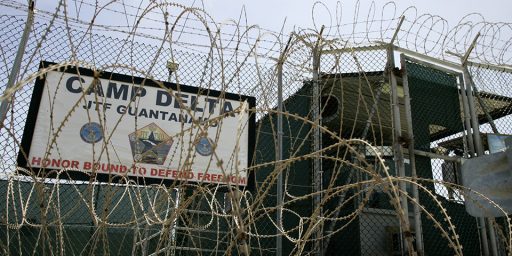Superpower Options
Wretchard makes a noteworthy point on the press criticism of Putin’s handling of the terrorism crisis in Russia:
The fact is that the world has been spoiled by looking at the world through the prism of the American media. When President Bush stopped to consider his response to September 11, he had a range of options available only to a nation as unimaginably powerful as the United States of America. Japanese newspapers reported that President Bush was offered the nuclear option immediately after the attack, probably as an extreme in a range that included filing a diplomatic protest on the opposite end of the spectrum, which he rejected, choosing instead to do what no other country could do: take down the state sponsors of terrorism and pursue the terrorists to the four corners of the earth. America’s unmatched power allowed President Bush to select the most humane course of war available. No European power, nor all of them put together, could have embarked on such a precise campaign for lack of means. It was a rich man’s strategy, a guerre de luxe.
But no one who has seen the rags and hodgepodge of equipment issued to the Russian Special Forces can entertain any illusion that Vladimir Putin can go around launching raids with hi-tech helicopters, or follow around perps with robotic drones before firing, or use satellite-guided bombs to wipe out enemy safe houses that have been seeded with RFID chips. Nor will those detained by Russia gain weight the way detainees have done at the “inhuman” Gitmo prison. That’s an American way of war which even Europeans can only regard with envy. The poor must respond with less. When the Nepalese saw the video of their 12 compatriots executed by terrorists in Iraq, they did what you could do with a box of matches: they burned the mosque in Kathmandu. To paraphrase Crosby, Stills and Nash, ‘if you can’t hit the one you should then hit the one you’re with’.
Of course, as Wretchard implies, it works both ways. The U.S. is hamstrung by unrealistic expectations created by our superpower stature. People have the expectation that, because we’re so powerful, this war should be similtaneously bloodless and fast. Fighting a war while safeguarding innocents is not only much slower but much more dangerous for our forces.




